“On the night the storm hit, in the maternity ward we assisted a mother as she gave birth to triplets while the health center was flooding and intense wind was ripping away parts of the roof. The situation was scary but we were very lucky, the mother and the three babies survived,” said Filomena Aibo Joao, maternal and child health (MCH) nurse, Alto Benfica Health Center, Mocuba District, Zambezia Province.
ZAMBEZIA, Mozambique - Tropical storm Ana made landfall in Angoche district, in the coastal province of Nampula on 24 January. It tracked westwards towards Zambezia and Tete provinces, causing widespread flooding, severe damage to public infrastructure and homes as well as interruption of basic services. The storm has significantly affected Zambezia, Nampula, and Tete provinces, and to a lesser extent Sofala, Niassa, and Cabo Delgado provinces.
“My house collapsed on top of me after I managed to take my children out,” said 48-year-old Florinda Culosa, one of the many people whose house was completely destroyed by Tropical Storm Ana in Mocuba District of Zambezia. During the storm Florinda had been in the house that she shared with her six children and two grandchildren. “I feel very sad about losing my house. Now I am asking for support so that we can move forward with our lives.”
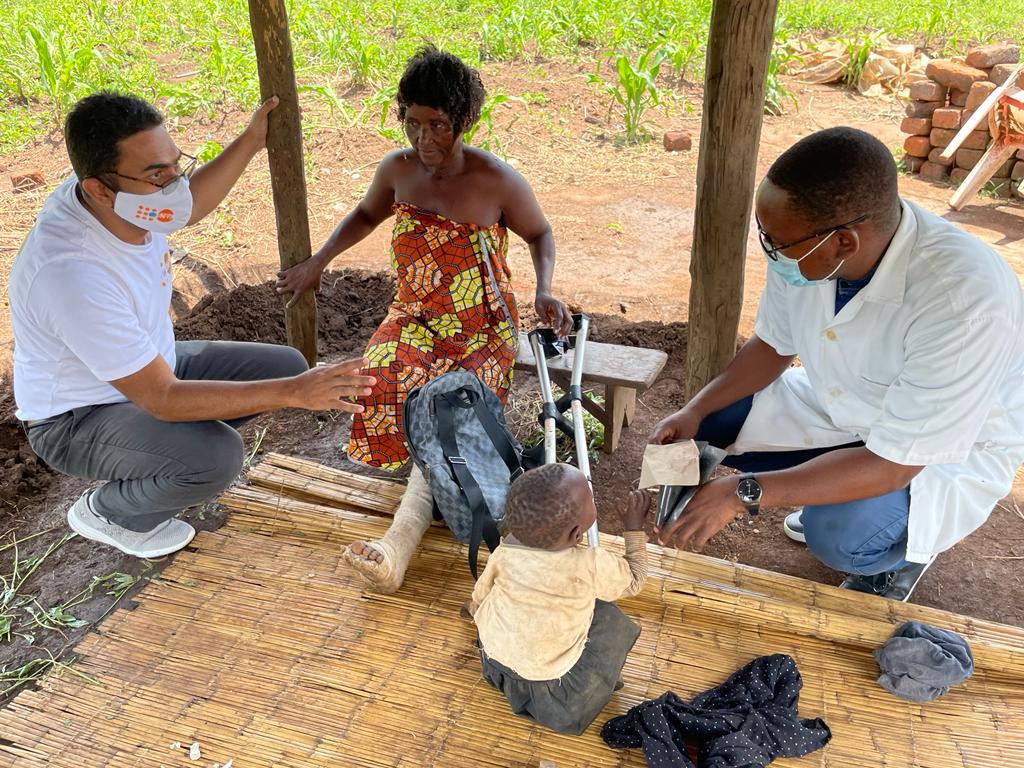
UNFPA Mozambique is supporting the Government’s efforts to assist affected populations in multiple provinces, including Zambezia, where 58,414 people were affected, 52 people were injured, 2,938 houses were completely destroyed and 17 health centers were damaged (INGD, 31 January).
UNFPA joined the recently established Provincial Multisectoral Needs Assessment Team (composed of provincial authorities and humanitarian partners) on a mission to the Namungaine Community in the Mugeba neighborhood of Mocuba district where, according to the Medical Chief of the District, Dr. Leonodo Janeiro, 17 families lost their homes and three people were injured.
As expressed by the UN Office for the Coordination of Humanitarian Affairs (OCHA) there are serious concerns about the storm’s impact and the limited resources available to respond to the needs of vulnerable populations, already affected by previous natural disasters and the conflict in the northern region. According to Mozambique’s National Institute for Disaster Management and Risk Reduction (INGD), the storm resulted in some 141,483 people affected (29,000 families), 220 people injured and 25 people killed (INGD, as of 31 January); 30 health centers were also affected. Continued heavy rains increase concern especially for populations in low-lying areas.
Through humanitarian funding support, the UNFPA Mozambique country office is currently supporting the Government to strengthen sexual and reproductive health services and protection services for the most vulnerable populations, particularly women and girls of reproductive age. Of the total people affected by Tropical Storm Ana, this includes an estimated 33,960 women of reproductive age, and 4,000 pregnant women (MISP calculation) who will continue to need reproductive health services.
To enhance preparedness and response efforts, with a particular focus on the sexual and reproductive health needs of affected women and girls, UNFPA supported efforts to assess the stock of contraceptives and maternal health medicines in the Mocuba District medical warehouse, run by Zambezia Provincial Health Services (SPS) and Mozambique’s Central Medical Stores (CMAM). These contraceptives and medical commodities will be provided to the affected populations through mobile brigades established to provide sexual and reproductive health services in the most remote affected areas.
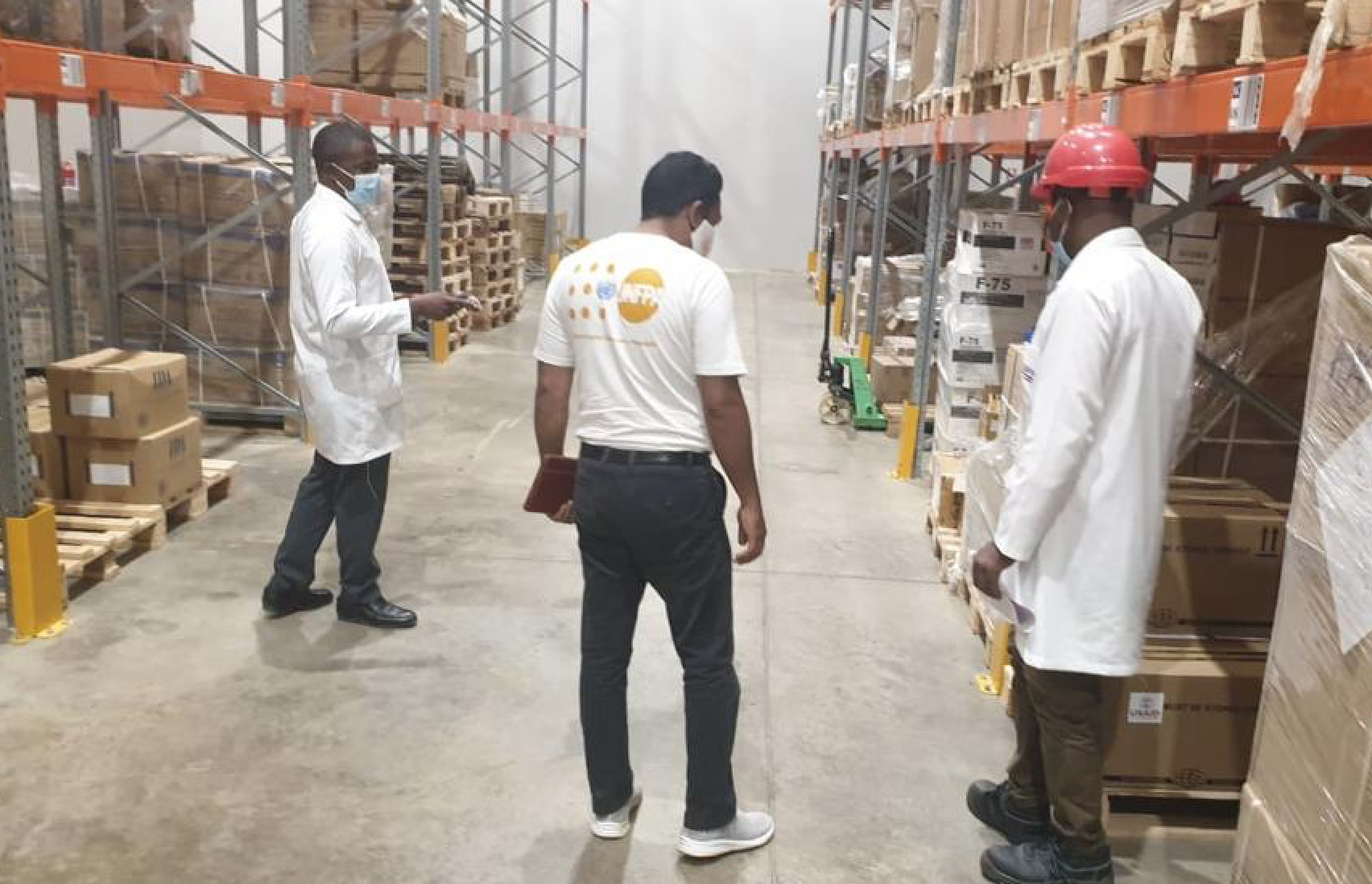
As part of UNFPA response in Tete Province, mobile clinics quickly resumed in Doa district on the 25th January, immediately after the heavy rains receded, in order to ensure continuity of reproductive health services for populations affected by Tropical Storm Ana. The mobile clinics, organized through the My Choice project, supported by The Embassy of the Netherlands in Mozambique, aim to provide continuity of sexual and reproductive health and family planning services in areas that are accessible to communities that may be isolated due to the floods.
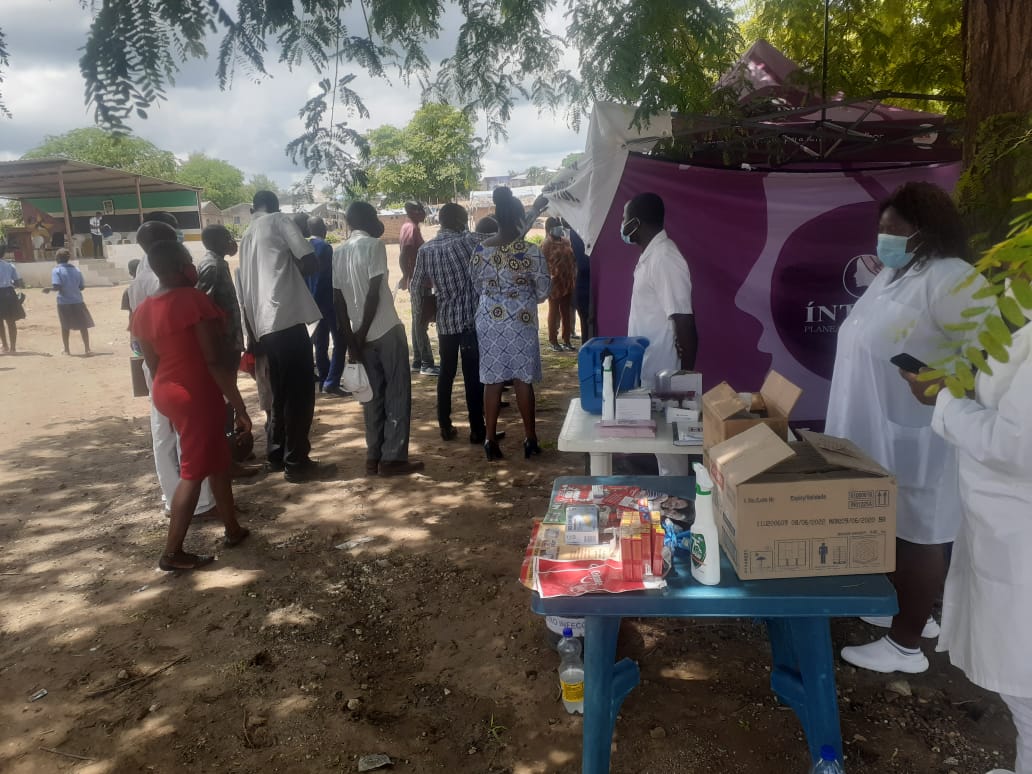
In collaboration with government partners, in the coming weeks UNFPA will provide several thousand dignity kits to vulnerable women and girls affected by Tropical Storm Ana to support their menstrual hygiene, sanitary, and female dignity needs – with items including reusable menstrual pads and underwear – and to support protection and safety with whistles and flashlights to aid them at night; giving women like Florinda (and their daughters) one less thing to worry about.
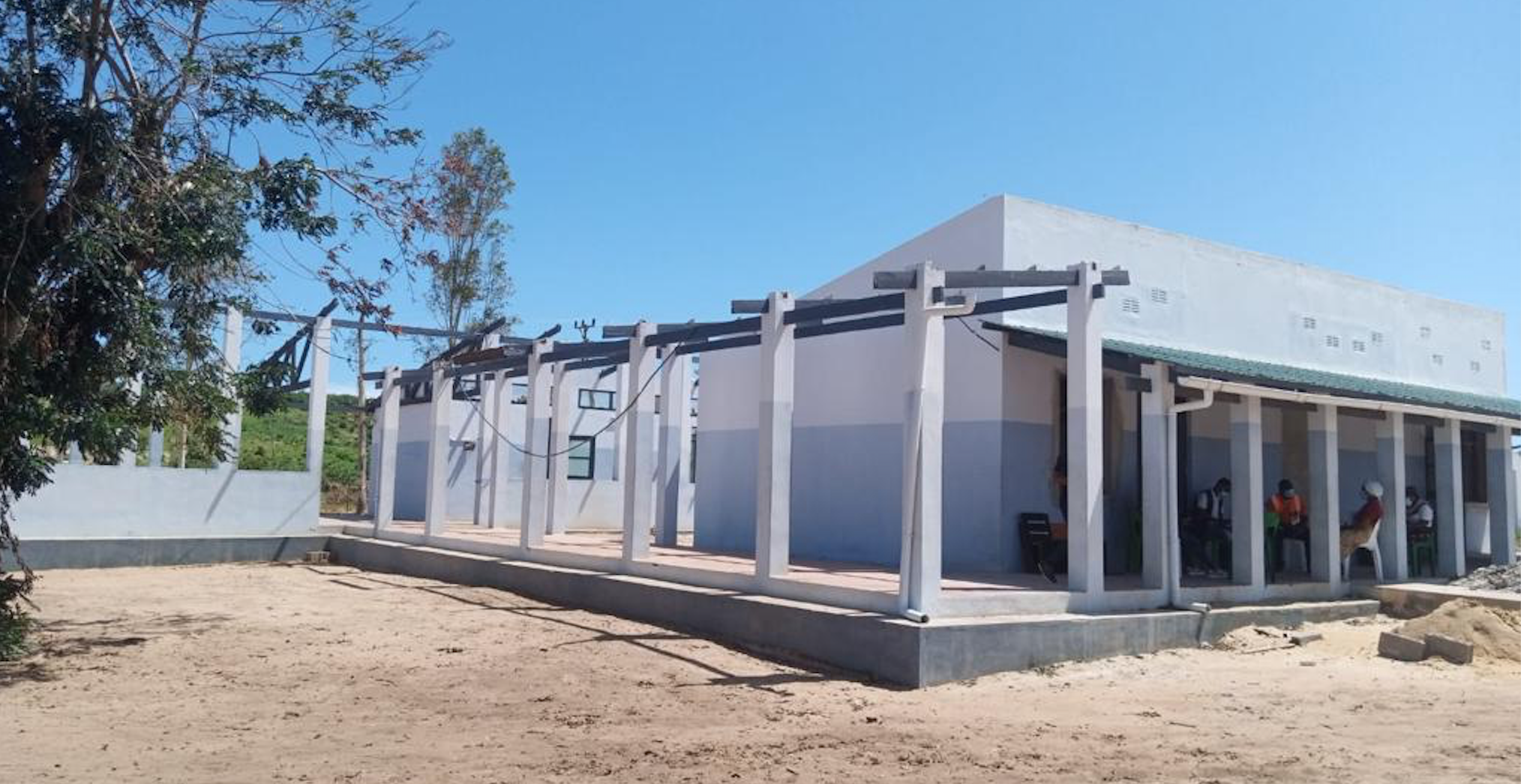
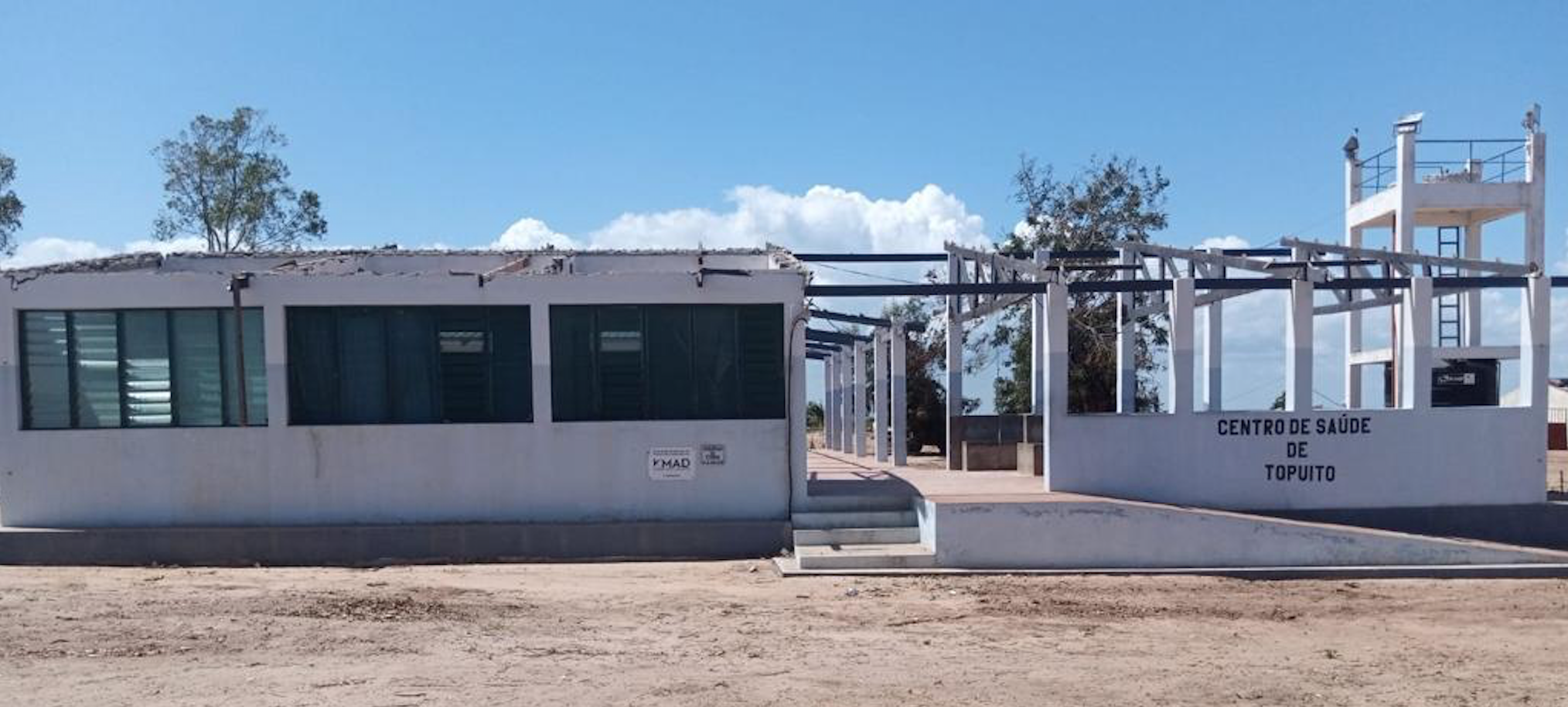
Several tents (24 square meters each) are being shipped this week, including to Zambezia, to be provided to damaged health centers to support continued service provision. Provision of relief materials and support for staff involved in the repose is provided by the Government of Norway, the UNFPA Emergency Response Fund, and by the Government of Austria for assessments and related support in Nampula province.
UNFPA in Mozambique continues to pre-position reproductive health kits, tents, dignity kits, and other supplies to be prepared to rapidly response during the cyclone season. This preparation is pertinent, as Another Tropical Cyclone, called Batsirai has already formed and may also affect Mozambique in the second week of February.
Scaling-up support for the most vulnerable remains critical. For women like Florinda, increased access to health services through mobile clinics and with dignity supplies will strengthen their autonomy and their ability to protect themselves.


